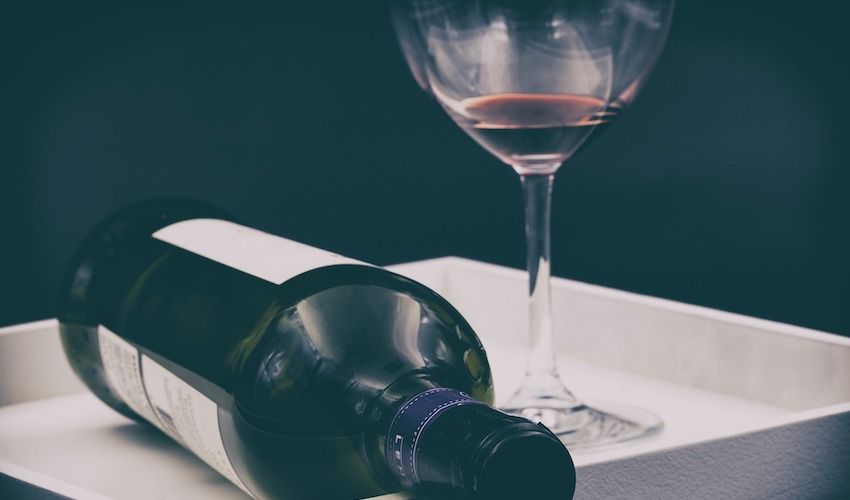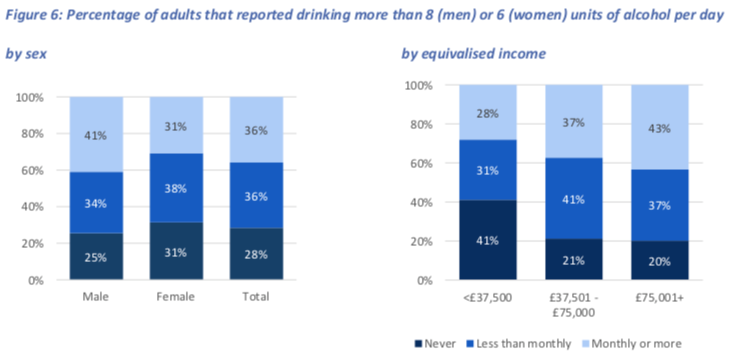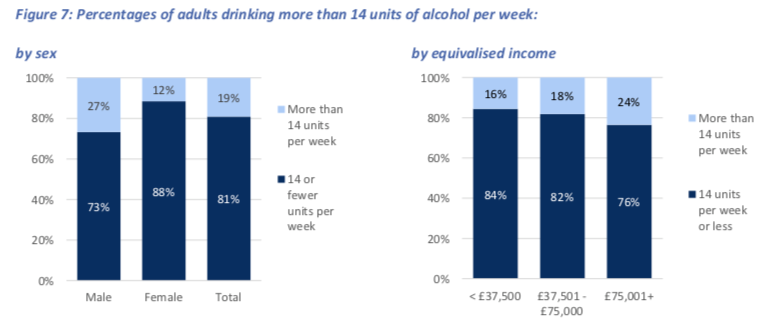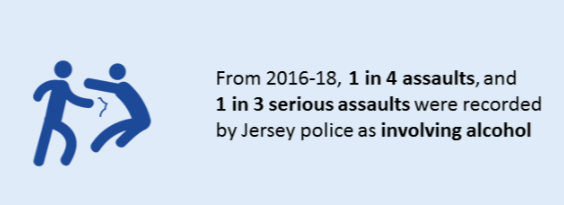

Wealthy men seem to be the most likely to be exceeding safe drinking limits, according to the latest official stats.
On average, islanders drank 11.8 litres of pure alcohol in 2018, the equivalent of approximately two-and- a-half bottles of wine, eight pints of strong beer or over half a bottle of spirits per week. Doctors recommend no more than 14 units per week, which represent approximately 1.6 bottles of wine or five pints of strong beer.
The 2018 Jersey Opinion and Lifestyle Survey (JOLS) showed that almost one in five (19%) Jersey adults admitted drinking in excess of 14 units on a typical week.
Males (27%) and those with a higher income (nearly a quarter of people in households earning over £75,001) were more likely to drink more than that.
Just over a third of people (36%) reported binge drinking monthly or more in the Jersey Opinion and Lifestyle Survey (JOLS), a majority of which were men.
Binge drinking is defined by the UK Office for National Statistics (ONS) as men drinking more than eight units on one day (around four pints of normal strength beer or three-quarters of a bottle of wine) and women drinking six units or more on one day (around three pints of normal strength beer or two large glasses of wine).
The report compiled by Statistics Jersey shows there is a higher proportion of monthly binge drinkers amongst men (41%) than women (31%).

Pictured: A breakdown of the 2018 JOLS results for binge drinking.
“Binge drinkers” also tend to be higher earners, as 43% of them live in households with an income of over £75,001, while 37% live in households with an income between £37,501 and £75,000. The figures also show they tend to live in qualified rental accommodation (53%) and are employed (40%).
Results showed that those on low incomes, retired persons, and those living in social rental accommodation are less likely to binge drink. The percentage of people binge drinking at a frequency of monthly or more has remained similar (between 35% and 37%) since 2014.

Pictured: Figures show that males and those with a higher income were more likely to drink more than 14 units of alcohol per week.
Just one in ten adults reported never drinking alcohol, including 14% of women and 20% of people whose households earn under £37,500. By comparison, only 3% of individuals living in households earning over £75,001 reported being teetotal.

Pictured: Alcohol was involved in 14% of the crimes recorded by the police last year.
The Alcohol Profile also showed that alcohol was involved in 14% of the 3,260 crimes recorded by the police in 2018, a percentage slightly lower than 2017, 15%. A fifth of those were "crime against the person," including a majority of assaults on police officers (46%), grave and criminal assaults (35%) and common assaults (27%).
Alcohol was also found to be involved in a third of domestic crimes as well as 41% of crimes associated with the “night-time economy” committed between 2016 and 2018. Those are described as occurring between 20:00 and 04:00, in or outside licenced premises, commercial premises or on St. Helier streets.
Comments
Comments on this story express the views of the commentator only, not Bailiwick Publishing. We are unable to guarantee the accuracy of any of those comments.